Indigenous Governance Database
Other Papers & Reports
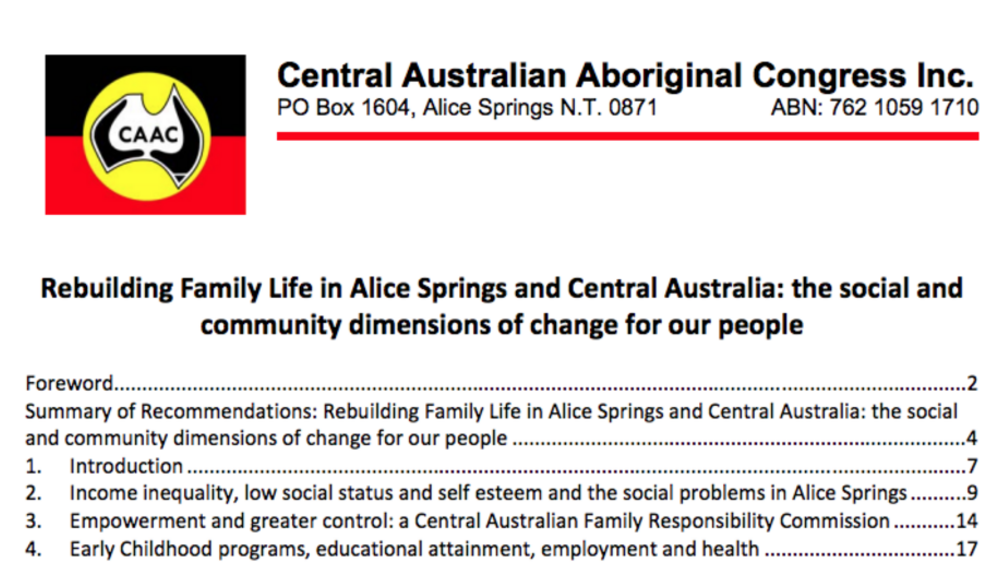
Rebuilding Family Life in Alice Springs and Central Australia: the social and community dimensions of change for our people
This paper has been released by the Central Australian Aboriginal Congress as a constructive contribution to the debate on the social crisis facing Alice Springs and Central Australia. It presents powerful ideas as well as concrete strategies for change that we believe can make a real difference…
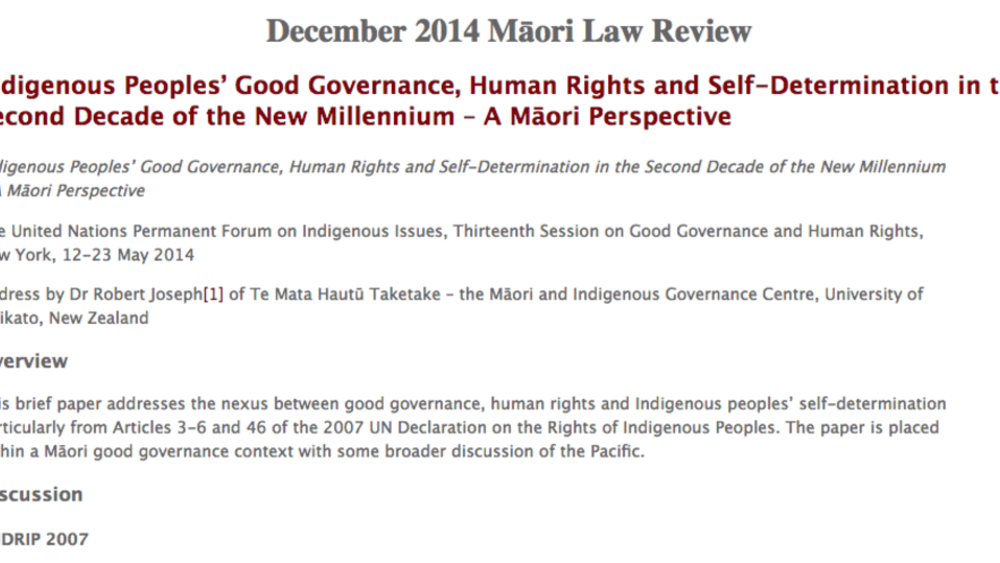
Indigenous Peoples’ Good Governance, Human Rights and Self-Determination in the Second Decade of the New Millennium – A Māori Perspective
This brief paper addresses the nexus between good governance, human rights and Indigenous peoples’ self-determination particularly from Articles 3-6 and 46 of the 2007 UN Declaration on the Rights of Indigenous Peoples. The paper is placed within a Māori good governance context with some…
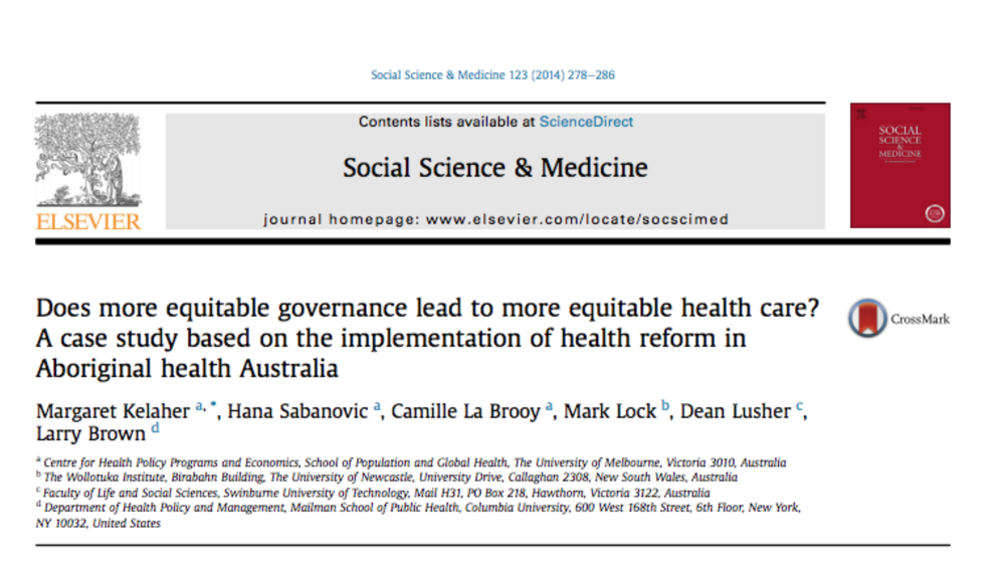
Does more equitable governance lead to more equitable health care? A case study based on the implementation of health reform in Aboriginal health Australia
There is growing evidence that providing increased voice to vulnerable or disenfranchised populations is important to improving health equity. In this paper we will examine the engagement of Aboriginal community members and community controlled organisations in local governance reforms associated…
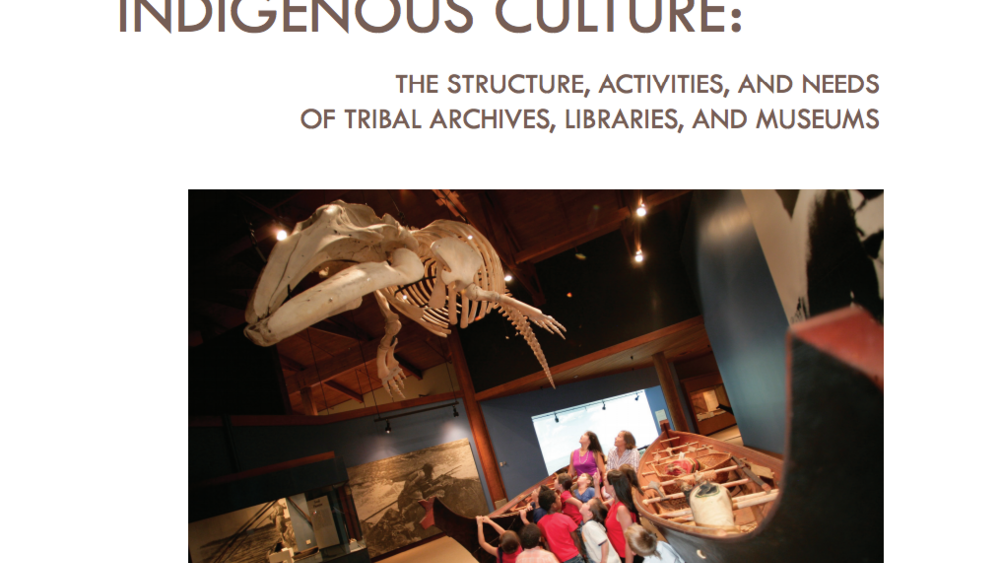
Sustaining Indigenous Culture: The Structure, Activities, and Needs of Tribal Archives, Libraries, and Museums
Sovereignty, self-determination, and self-governance are primary goals of Indigenous nations worldwide and they take important steps toward those goals by renewing control over their stories, documents, and artifacts. To better support it, a core team of Native professionals formed the…
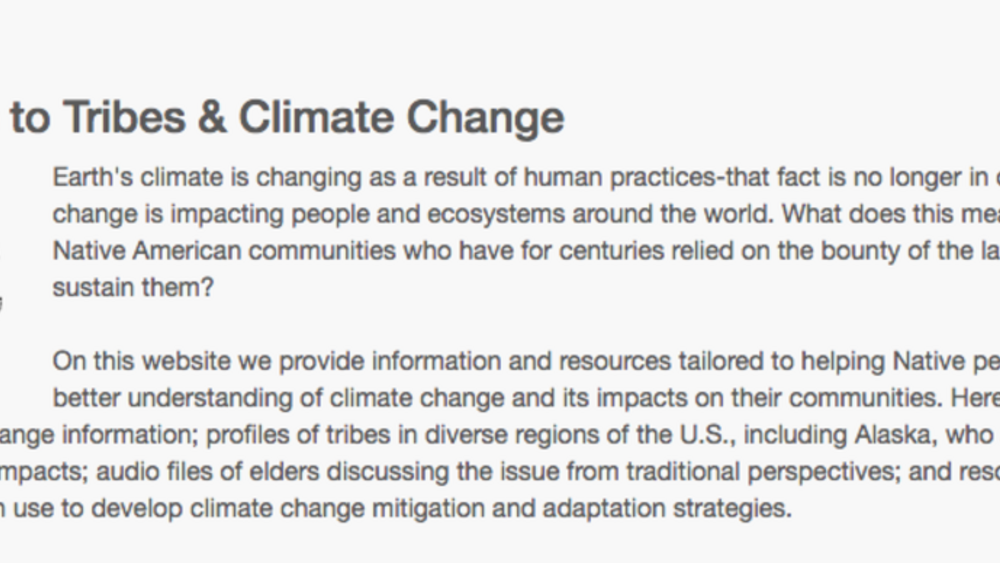
Mescalero Apache Tribe: Innovative approaches to climate change adaptation
There is no disagreement that the climate in the Sacramento Mountains has been getting warmer and dryer in recent years. Indeed, the temperature and drought regimes of late have been described as extreme by state meteorologists. The winter season, the period of time between the first freeze and the…
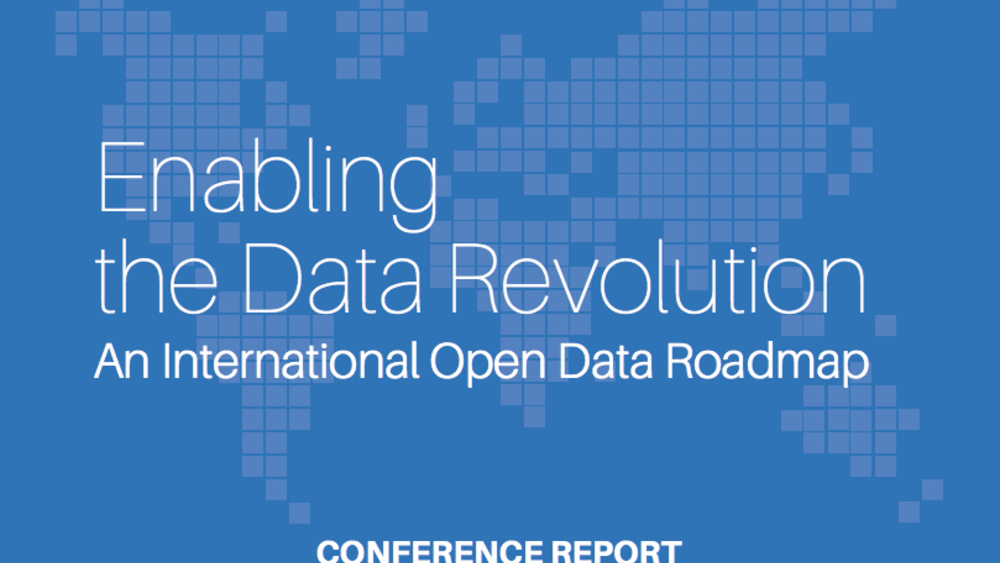
Enabling the Data Revolution: An International Open Data Roadmap
Open data in the context of indigenous peoples and communities can be understood as a double-edged sword. On the one hand, open data can help indigenous communities, both internally and externally. Internally, it can be used to inform policy, allocate resources, and set a vision for indigenous…
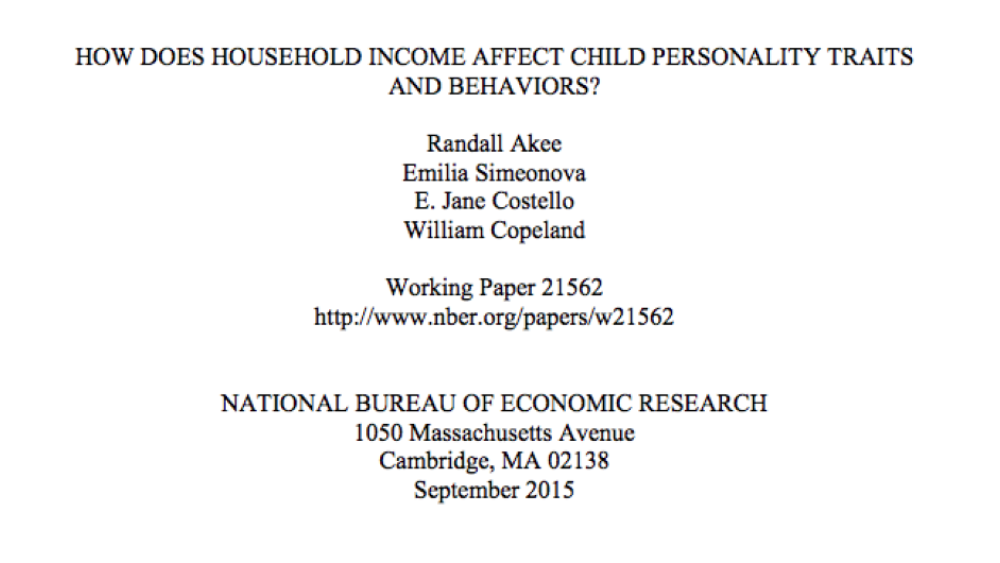
How Does Household Income Affect Child Personality Traits and Behaviors?
Existing research has investigated the effect of early childhood educational interventions on the child's later-life outcomes. These studies have found limited impact of supplementary programs on children's cognitive skills, but sustained effects on personality traits. We examine how a positive…
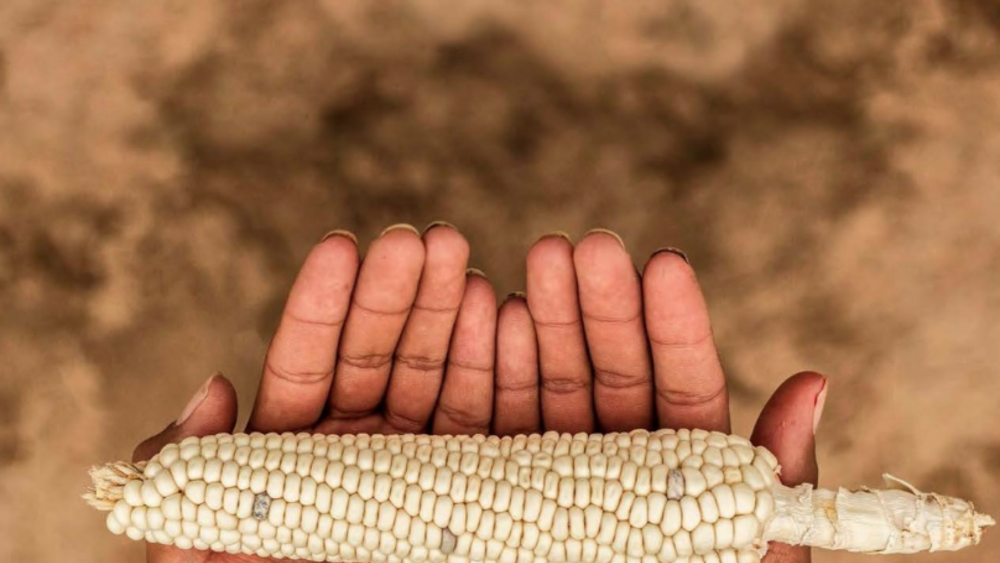
Feeding Ourselves: Food Access, Health Disparities, and the Pathways to Healthy Native American Communities
Echo Hawk Consulting, headed by Crystal Echo Hawk, released today a comprehensive report on the state of food access in Native American communities, and the resulting health disparities in Native Americans. The report--commissioned by the American Heart Association (AHA) and its Voices for Healthy…
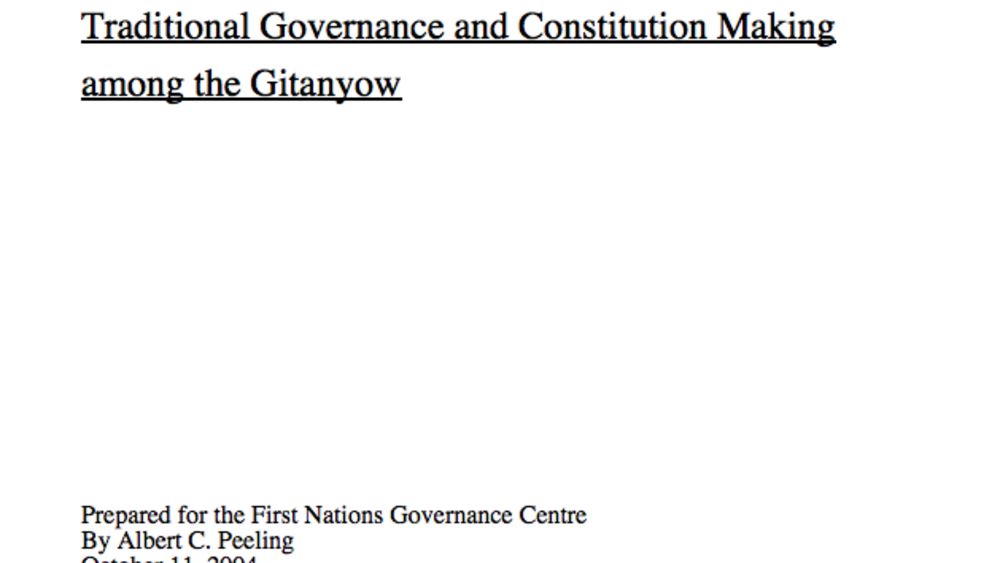
Traditional Governance and Constitution Making among the Gitanyow
This paper is a report on traditional governance and constitution making among the Gitanyow people prepared for the Gitanyow and for the First Nations Governance Centre. The Gitanyow are well along in the development of a national constitution based on traditional governance, and this paper will…
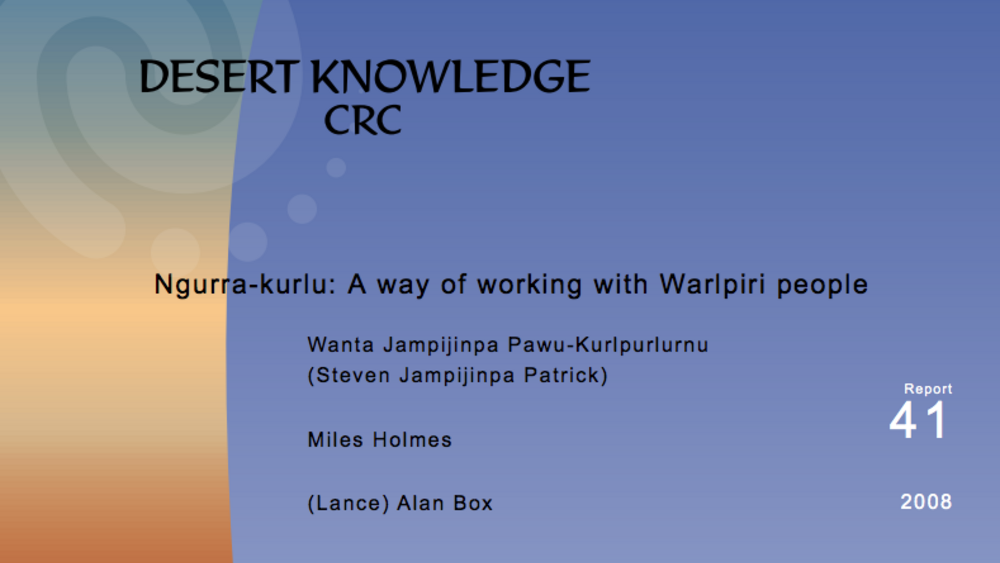
Ngurra-kurlu: A way of working with Warlpiri people
Ngurra-kurlu is a representation of the five key elements of Warlpiri culture: Land (also called Country), Law, Language, Ceremony, and Skin (also called Kinship). It is a concept that highlights the primary relationships between these elements, while also creating an awareness of their deeper…
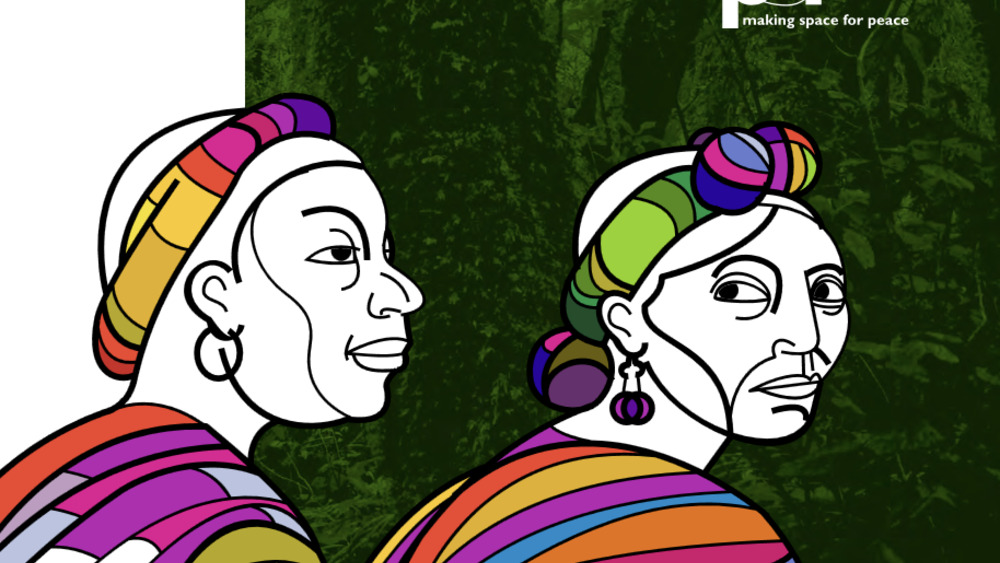
Guatemala’s Indigenous Women in Resistance: On the Frontline of the Community’s Struggle to Defend Mother Earth and her Natural Assets
The objective of this study is to examine the social process at work in the defense of natural resources from the perspective of the indigenous women involved in it. Given the country’s broad cultural diversity and the time limits for completing this report, we assumed right from the start that it…
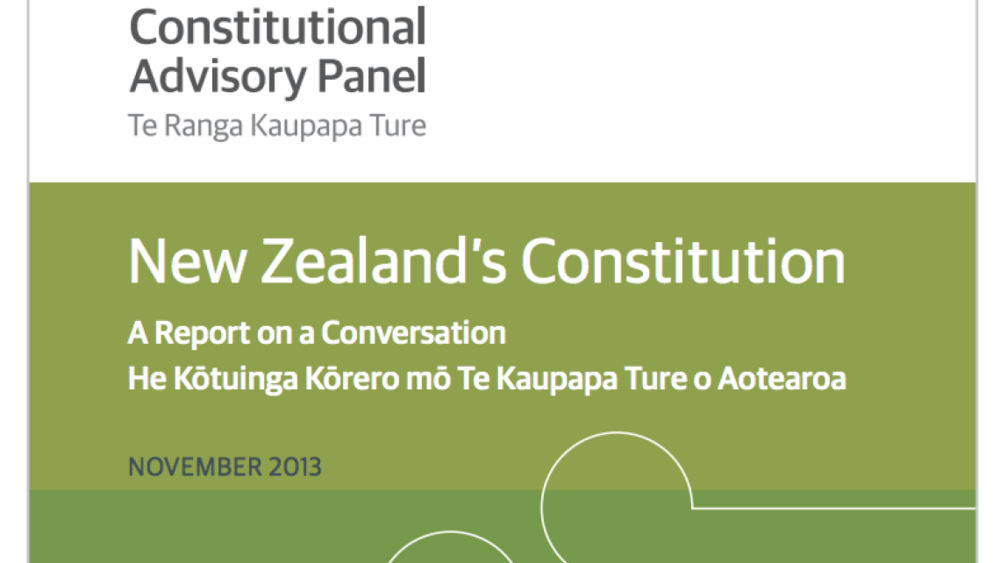
New Zealand's Constitution: A Report on a Conversation He Kotuinga Korero mo Te Kaupapa Ture o Aotearoa
The appointment of the Constitutional Advisory Panel in August 2011 was another step in a longer and continuing conversation about how to govern the people, land and resources of Aotearoa New Zealand.The Panel was appointed as part of the Consideration of Constitutional Issues, which was agreed to…
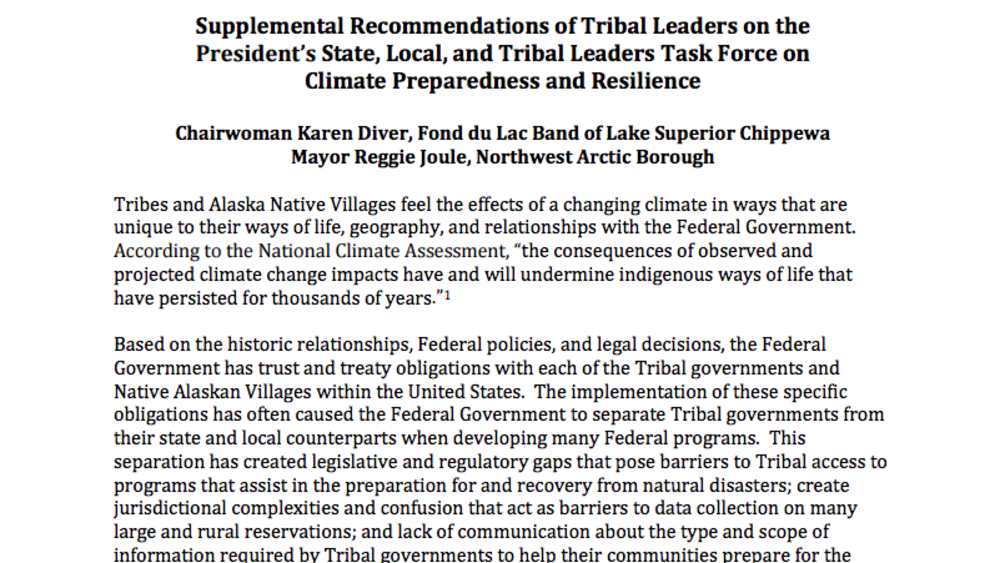
Supplemental Recommendations of Tribal Leaders on the President's State, Local, and Tribal Leaders Task Force on Climate Preparedness and Resilience
Tribes and Alaska Native Villages feel the effects of a changing climate in ways that are unique to their ways of life, geography, and relationships with the Federal Government. According to the National Climate Assessment, “the consequences of observed and projected climate change impacts have and…
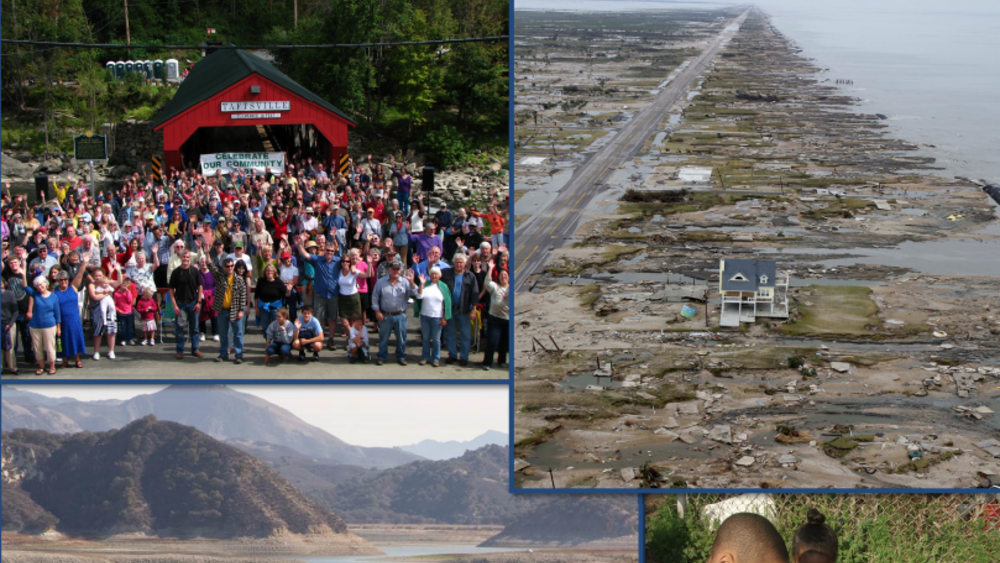
President's State, Local, and Tribal Leaders Task Force on Climate Preparedness and Resilience: Recommendations to the President
As the Third National Climate Assessment makes clear, climate change is already affecting communities in every region of the country as well as key sectors of the economy. Recent events like Hurricane Sandy in the Northeast, flooding throughout the Midwest, and severe drought in the West have…
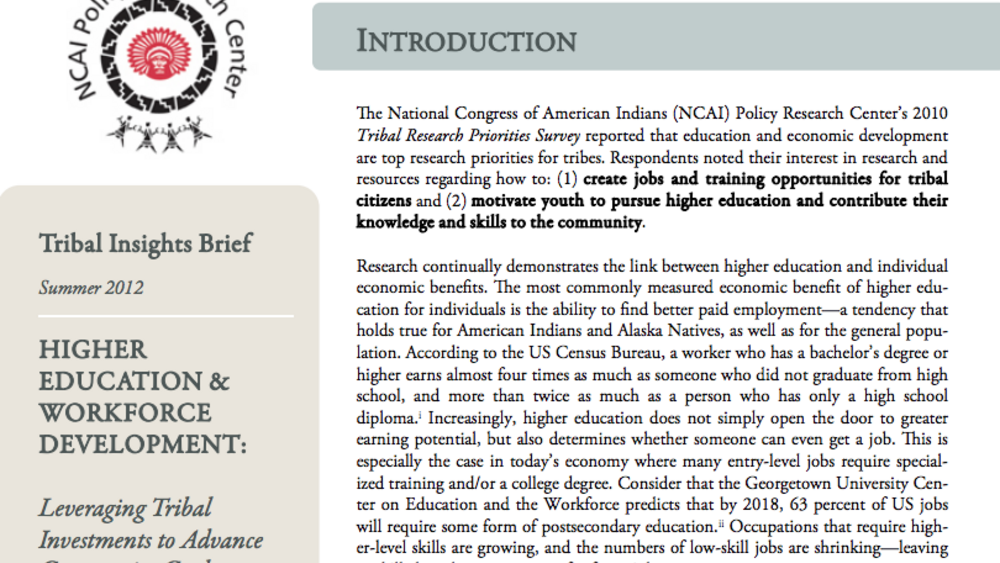
Higher Education & Workforce Development: Leveraging Tribal Investments to Advance Community Goals
The National Congress of American Indians (NCAI) Policy Research Center's 2010 Tribal Research Priorities Survey reported that education and economic development are top research priorities for tribes. Respondents noted their interest in research and resources regarding how to: (1) create jobs and…

Diné Food Sovereignty: A Report on the Navajo Nation Food System and the Case to Rebuild a Self Sufficient Food System for the Diné People
In the most basic analysis, food is an essential component of human life. Food nourishes and sustains us; without adequate access to food, human beings cannot survive. As a basic necessity for life, food is interconnected with every sector of life and wellbeing including health (physical, mental,…
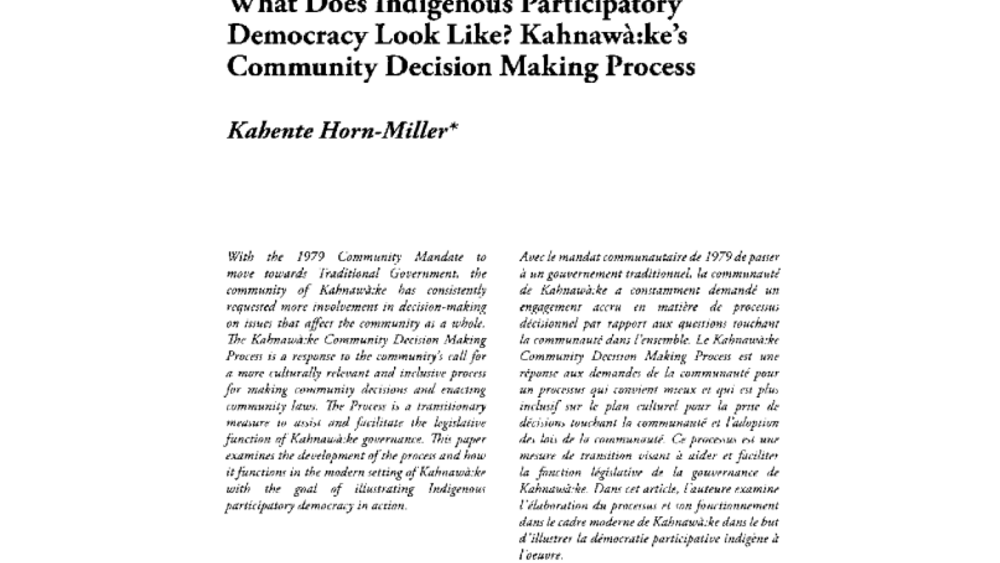
What Does Indigenous Participatory Democracy Look Like? Kahnawà:Ke's Community Decision Making Process
With the 1979 Community Mandate to move towards Traditional Government, the community of Kahnawà:ke has consistently requested more involvement in decision-making on issues that affect the community as a whole. The Kahnawà:ke Community Decision Making Process is a response to the community's call…
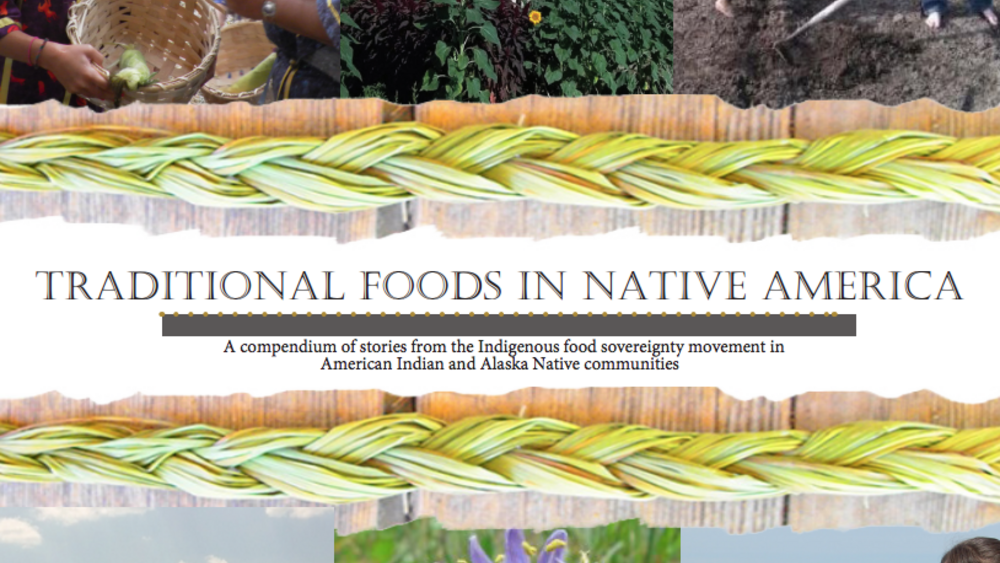
Traditional Foods in Native America
Commissioned by the Centers for Disease Control and Prevention’s (CDC) Native Diabetes Wellness Program (NDWP), this report highlights traditional foods programs in six culturally and geographically diverse American Indian and Alaska Native communities. For decades, American Indian and Alaska…
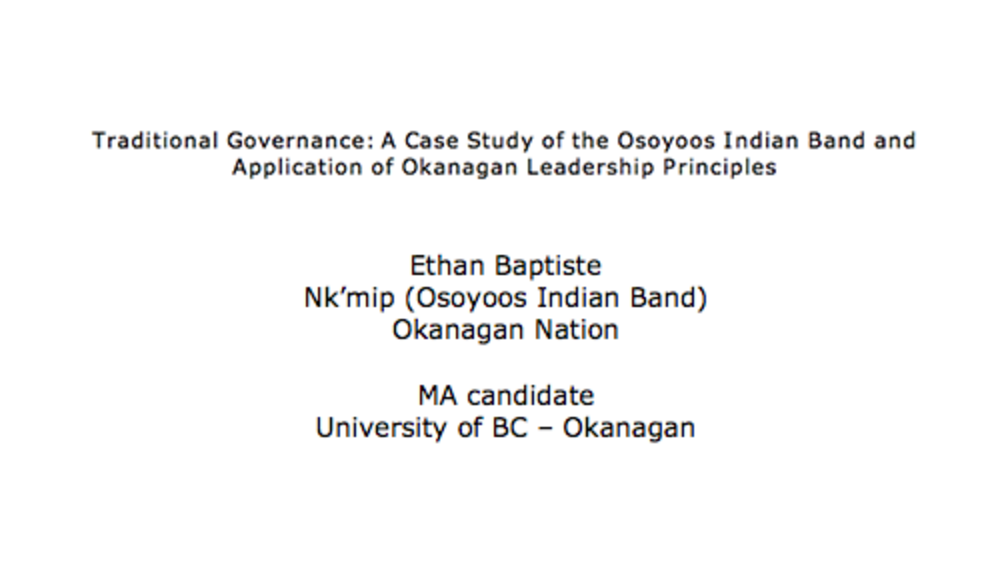
Traditional Governance: A Case Study of the Osoyoos Indian Band and Application of Okanagan Leadership Principles
There are traditional Okanagan governance and leadership principles and guidelines that have been informed through language terms and traditional stories. These have been interpreted and taught to us by our elders of the Okanagan Nation. Five principles of traditional Okanagan leadership will be…
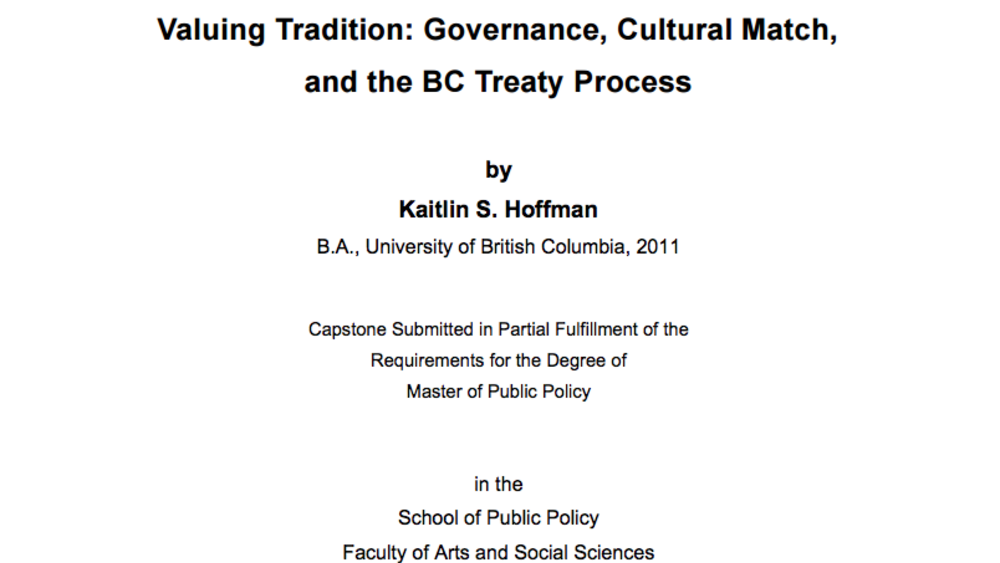
Valuing Tradition: Governance, Cultural Match, and the BC Treaty Process
Self-governance negotiations are an integral part of British Columbia's modern day treaty process. At some treaty tables, impasses have resulted from differences on how to include traditional First Nations governance within treaty. Although some First Nations are determined to pursue traditional…
Pagination
- First page
- …
- 3
- 4
- 5
- …
- Last page
